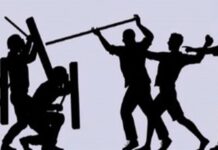What will banning rickshaws achieve?

To solve Dhaka’s traffic problem, we need to look at the bigger picture
Rickshaws have always been one of the principal means of transport for the people of Dhaka city. Dhaka is also known as the rickshaw capital of the world, as according to many surveys, there are over 500,000 rickshaws running on its roads.
Though it is also seen in rural areas, the usage of rickshaws is more in urban areas. This three-wheeler is well known for being eco-friendly as it only requires physical effort to keep running, creating zero pollution. Rickshaws are popular with people belonging to all the sectors, as it not only covers long distances, but also the shorter ones where no public transport is available.
Rickshaws have also been tied to various forms of employment, which not only includes the pullers, but also includes the mechanics, painters, and the parts and accessories suppliers associated with it. Moreover, in urban areas, many roadside food-stalls — where the daily meals as well as other snacks are sold at cheap prices — are sustained by the day labourers and rickshaw-pullers.
With recent news of road-accidents where, in most cases, the hit and run scenarios take place because of buses and motorcycles, general people have arguably become even more dependent on rickshaws. Moreover, getting sexually harassed, which has become a common scenario, and mostly while travelling on local buses, women feel much safer and comfortable in travelling by a rickshaw.
Hence, banning rickshaws on three of the major routes of the city is a questionable decision, where no other secondary means of transportation has been provided yet.
Many ride-sharing apps are costlier than a rickshaw. Job holders and students, who are the principal users of rickshaws, will face troubles due to the banning of rickshaws.
Most of the rickshaw-pullers live a life which is below the poverty line, and rickshaw-pulling is the only way of earning for them. Thus, a huge number of families will be at risk due to lower income and even joblessness because of the ban. This, in turn, could also lead to the families becoming more desperate, and therefore increase theft and robbery.
Dhaka is a city which, on top of being overly crowded, has poor infrastructure. Therefore, banning rickshaws won’t help that much as a solution to eradicate traffic congestion because the main problem lies elsewhere.
In a study commissioned by BRAC Institute of Government and Development, it was shown that the growing traffic congestion in Dhaka destroys around 5 million working hours every day and costs the country $11.4 billion every year. With such an intensity of a problem, simply banning a means of transportation without taking into account the hassles of the masses won’t do much good.
As the rickshaw is massively availed by the general people, perhaps the government can come up with alternative solutions such as introducing lane-systems where these eco-friendly transports can run on the roads.
Much more attention should rather be given on developing better infrastructure such as better construction means and parking lanes. Additionally, evacuating footpaths, educating drivers, imposing traffic penalties, strictly following the road lights, and using less private cars will all go a long way to control traffic in the city.
A collective effort from both the government and the general people may help in solving the massive traffic congestion of our country.
Faria Iffat Mim is a legal apprentice.









